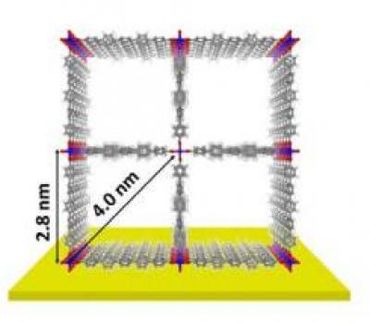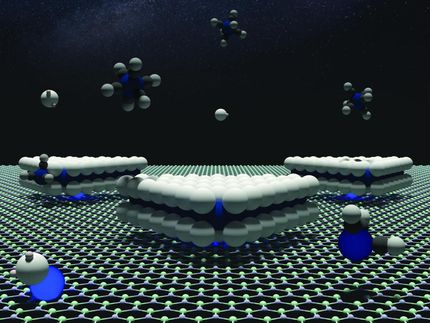Boron nitride foam soaks up carbon dioxide
Scientists lead effort to make novel 3-D material
Advertisement
Rice University materials scientists have created a light foam from two-dimensional sheets of hexagonal-boron nitride (h-BN) that absorbs carbon dioxide.
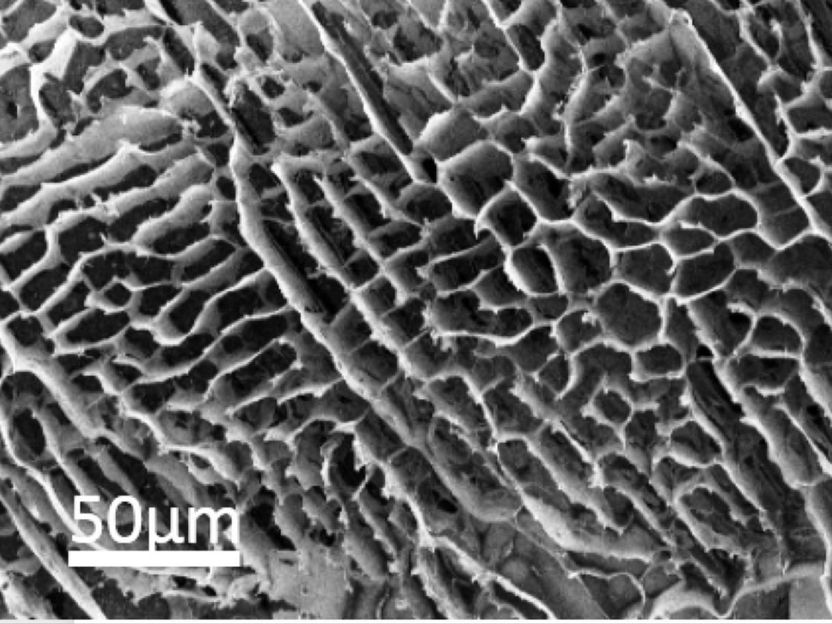
A microscope image shows the high surface area of hexagonal-boron nitride foam glued together with polyvinyl alcohol. The tough, light foam can be used to soak up carbon dioxide or as a material to shield biological tissues from lasers.
Ajayan Research Group/Rice University
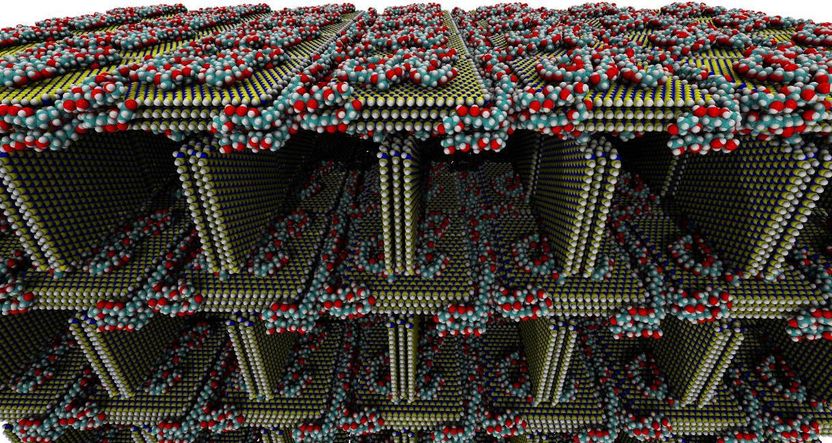
A molecular dynamics simulation shows polyvinyl alcohol molecules of carbon (teal), oxygen (red) and hydrogen (white) binding two-dimensional sheets of hexagonal-boron nitride (blue and yellow). The reusable material created at Rice University can sequester more than three times its weight in carbon dioxide.
Ajayan Research Group/Rice University
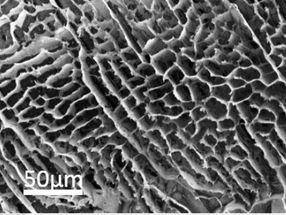
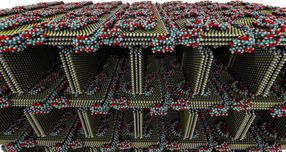
They discovered freeze-drying h-BN turned it into a macro-scale foam that disintegrates in liquids. But adding a bit of polyvinyl alcohol (PVA) into the mix transformed it into a far more robust and useful material.
The foam is highly porous and its properties can be tuned for use in air filters and as gas absorption materials, according to researchers in the Rice lab of materials scientist Pulickel Ajayan.
The polyvinyl alcohol serves as a glue. Mixed into a solution with flakes of h-BN, it binds the junctions as the microscopic sheets arrange themselves into a lattice when freeze-dried. The one-step process is scalable, the researchers said.
"Even a very small amount of PVA works," said co-author and Rice postdoctoral researcher Chandra Sekhar Tiwary. "It helps make the foam stiff by gluing the interconnects between the h-BN sheets - and at the same time, it hardly changes the surface area at all."
In molecular dynamics simulations, the foam adsorbed 340 percent of its own weight in carbon dioxide. The greenhouse gas can be evaporated out of the material, which can be reused repeatedly, Tiwary said. Compression tests showed the foam got stiffer through 2,000 cycles as well.
And when coated with PDMS, another polymer, the foam becomes an effective shield from lasers that could be used in biomedical, electronics and other applications, he said.
Ultimately, the researchers want to gain control over the size of the material's pores for specific applications, like separating oil from water. Simulations carried out by co-author Cristiano Woellner, a joint postdoctoral researcher at Rice and the State University of Campinas, Brazil, could serve as a guide for experimentalists.
"It's important to join experiments and theoretical calculations to see the mechanical response of this composite," Woellner said. "This way, experimentalists will see in advance how they can improve the system."



